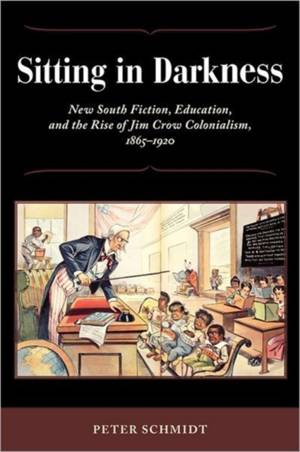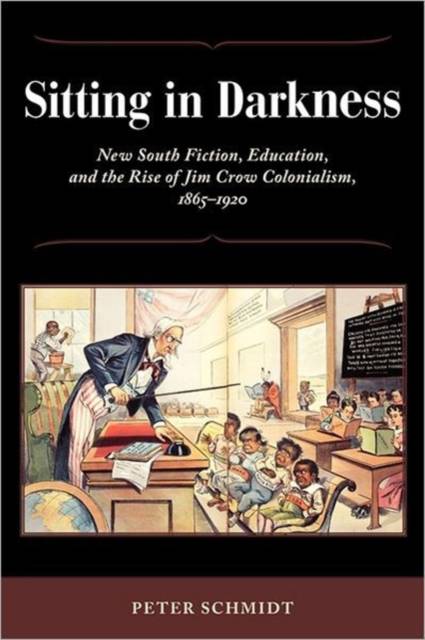
Door een staking bij bpost kan je online bestelling op dit moment iets langer onderweg zijn dan voorzien. Dringend iets nodig? Onze winkels ontvangen jou met open armen!
- Afhalen na 1 uur in een winkel met voorraad
- Gratis thuislevering in België vanaf € 30
- Ruim aanbod met 7 miljoen producten
Door een staking bij bpost kan je online bestelling op dit moment iets langer onderweg zijn dan voorzien. Dringend iets nodig? Onze winkels ontvangen jou met open armen!
- Afhalen na 1 uur in een winkel met voorraad
- Gratis thuislevering in België vanaf € 30
- Ruim aanbod met 7 miljoen producten
Zoeken
Sitting in Darkness
New South Fiction, Education, and the Rise of Jim Crow Colonialism, 1865-1920
Peter Schmidt
Paperback | Engels
€ 38,95
+ 77 punten
Omschrijving
Sitting in Darkness explores how fiction of the Reconstruction and the New South intervenes in debates over black schools, citizen-building, Jim Crow discrimination, and U.S. foreign policy towards its territories and dependencies. The author urges a reexamination not only of the contents and formal innovations of New South literature but also its importance in U.S. literary history. Many rarely studied fiction authors (such as Ellwood Griest, Ellen Ingraham, George Marion McClellan, and Walter Hines Page) receive generous attention here, and well-known figures such as Albion Tourgée, Frances E. W. Harper, Sutton Griggs, George Washington Cable, Mark Twain, Thomas Dixon, Owen Wister, and W. E. B. Du Bois are illuminated in significant new ways. The book's readings seek to synthesize developments in literary and cultural studies, ranging through New Criticism, New Historicism, postcolonial studies, black studies, and "whiteness" studies. This volume posits and answers significant questions. In what ways did the "uplift" projects of Reconstruction-their ideals and their contradictions-affect U.S. colonial policies in the new territories after 1898? How can fiction that treated these historical changes help us understand them? What relevance does this period have for us in the present, during a moment of great literary innovation and strong debate over how well the most powerful country in the world uses its resources?
Specificaties
Betrokkenen
- Auteur(s):
- Uitgeverij:
Inhoud
- Aantal bladzijden:
- 272
- Taal:
- Engels
Eigenschappen
- Productcode (EAN):
- 9781617032073
- Verschijningsdatum:
- 29/08/2011
- Uitvoering:
- Paperback
- Formaat:
- Trade paperback (VS)
- Afmetingen:
- 152 mm x 229 mm
- Gewicht:
- 403 g

Alleen bij Standaard Boekhandel
+ 77 punten op je klantenkaart van Standaard Boekhandel
Beoordelingen
We publiceren alleen reviews die voldoen aan de voorwaarden voor reviews. Bekijk onze voorwaarden voor reviews.











